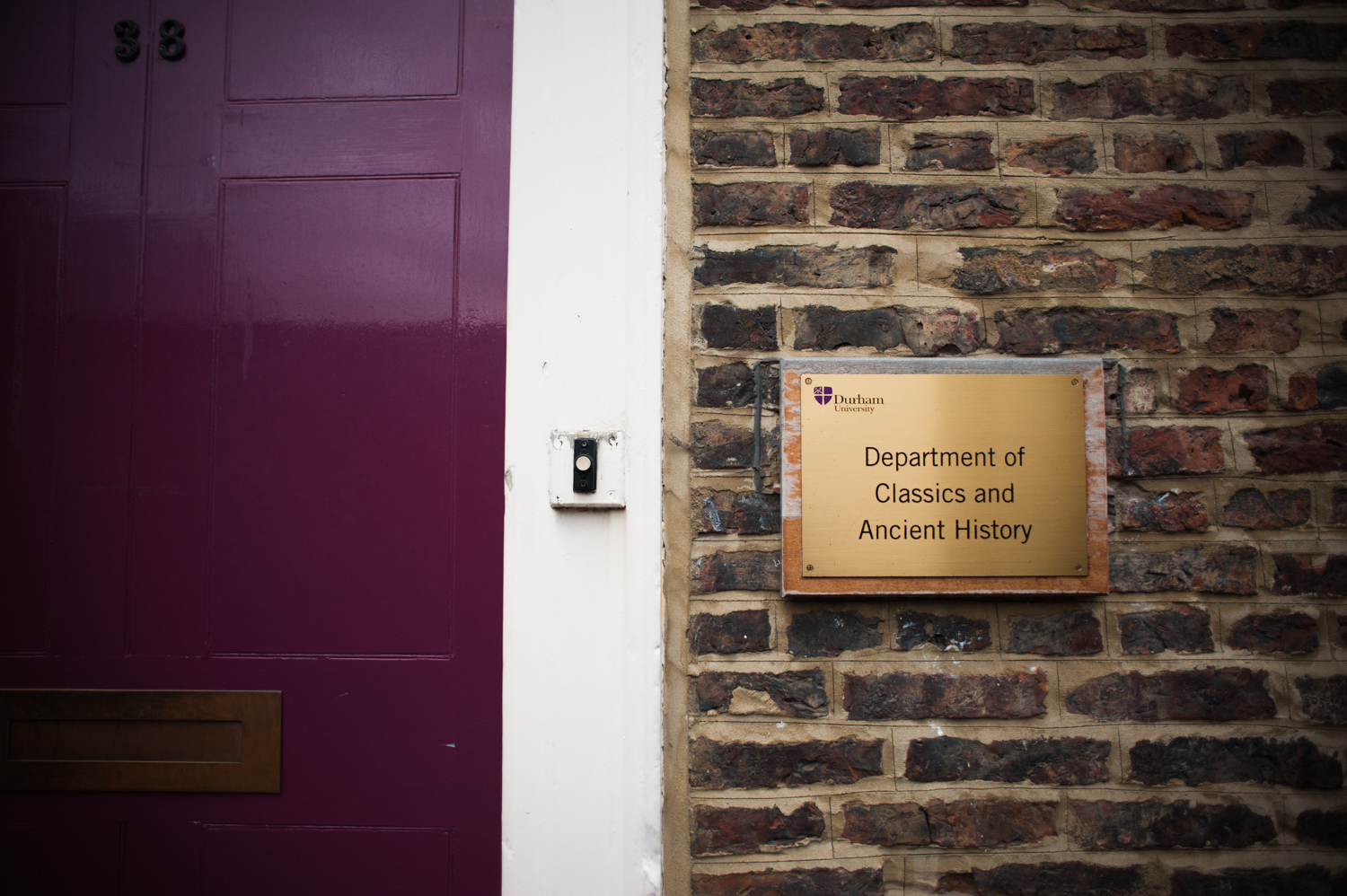Department of Classics and Ancient History

Welcome to the Department of Classics and Ancient History
The Department of Classics and Ancient History submitted 20 members of staff, comprising 20 Full-Time Equivalent (FTE) staff, to the REF Classics Unit of Assessment (UoA). The submission included two Early Career Researchers.
Opening up the Classics to the digital world
Durham’s research helps people all over the world to access ancient Greek and Latin literature.
About Us
Digital Humanities
Digital Humanities are at the core of our future research plans, including projects to support neural machine translation and machine learning approaches to stemmatics and dating text, in partnership with Durham’s new Institute for Data Science. Learn more about Professor Peter Heslin’s widely acclaimed Diogenes project to support open access to online classical texts.
Staff Body
Diversity remains at the heart of our recruitment process. Since 2021, we have appointed five women to posts in the Department. Learn more about our staff.
Links to teaching
September 2022 will see the first intake of students on Durham’s new PGCE in Classics: the only teacher training resource in Classics for students in the north of England. Learn more about this important new development.
Impact
Dr Lucy Jackson is developing exciting links with the National Theatre (NT) and exploring the history of the performance of Greek tragedy in the UK through archives at the NT.
Classics REF Impact Case Studies
Classics submitted three impact case studies including access to classical texts and censorship.
View some of our Highlights
Diogenes: Open Access to Ancient Greek and Latin
Living Poets
Romosexuality: sexuality and censorship
Research Themes
Selected research areas within the department include Classical Latin and Augustan Poetry, Syriac, Ancient Science, and Digital Humanities. The Department currently hosts one of the largest concentrations of scholars working on classical Latin anywhere in the world.
Like to Know More?
The Department hosts three Research Centres:
- The Centre for the Study of the Ancient Mediterranean and Near East (CAMNE)
- The Centre for Classical Reception (DCCR)
- The Centre for Ancient and Medieval Philosophy (DCAMP)
DCAMP capitalises on Durham’s position as a world-leading centre for the study of philosophy in the pre-modern period, bringing together specialists from across Departments and Faculties to foster innovative collaboration in research and teaching. It promotes work at the leading edge of research in ancient and medieval philosophy, develops unique training opportunities at Durham for young researchers, and brings to the widest possible public an appreciation of the first 2,000 years of philosophical debate that has shaped our world.


.png)
/prod01/prodbucket01/media/durham-university/departments-/classics-and-ancient-history/32405-650X433.jpg)
/prod01/prodbucket01/media/durham-university/departments-/classics-and-ancient-history/32408-650X433.jpg)
/prod01/prodbucket01/media/durham-university/departments-/classics-and-ancient-history/publications/T.-of-Aphaia-Aegina-650X488.JPG)

/prod01/prodbucket01/media/durham-university/research-/research-centres/study-of-the-ancient-med-amp-nr-east-centre-for/CAMNE-500X375.jpg)
/prod01/prodbucket01/media/durham-university/departments-/classics-and-ancient-history/59366-500X313.jpg)